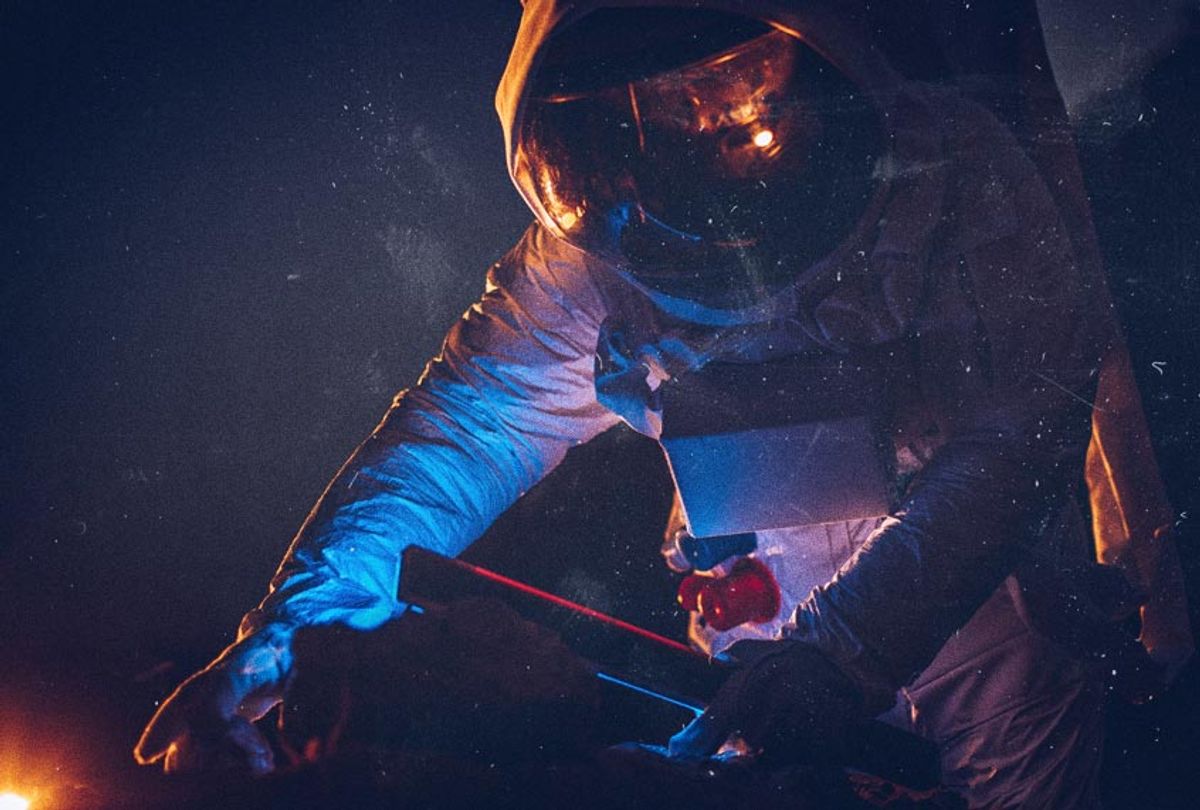The beauty of space has long left humans in awe. Space exploration has generated amazing new technologies, beautiful pictures, and inspired many generations. But space travel is not as glamorous as it seems; astronauts train for years before they can ascend, and once in space, they face many risks that have long term effects on their health. Most commonly, we hear of the bone loss and muscle weakness that living in microgravity causes. But over the course of the last two decades, research has revealed a new problem for astronauts: herpes.
Herpes viruses are the cause of both painful oral cold sores as well as genital herpes. In fact, herpes is actually a large family of eight different human viruses, including some of the most common human pathogens. Chicken pox, mononucleosis (also known as the kissing disease ?), some childhood rashes, and shingles are all examples of illnesses this group of viruses can cause. What makes herpes viruses unique is their ability to establish latency — meaning after your initial infection, they linger in your body, sometimes causing relapses years or decades later. This ability is why that pesky cold sore always comes back in the same place — and why, 50 years after you had chicken pox, you may be at risk of developing shingles later in life. These viruses retreat into our cells until they are triggered by various stressors and reactivate, causing a contagious stage where we “shed” virus and may see symptoms re-emerge.

One of these triggers may be space travel. A paper published this February reported that 60% of astronauts shed at least one herpes virus during their mission to the international space station (ISS). While no one knows the exact percentage of the general public who have a herpes virus, 60% of astronauts having an active herpes virus is high (by comparison, people recently infected with herpes simplex virus 1 or 2 are actively shedding about 30% of the time). This research has major implications for future space exploration, and may even give us clues to how to combat herpes infection here on Earth.
Space Health
Long term stress can suppress the immune system, which is a huge issue for astronauts, as space flight and life aboard the ISS are high stress environments. Researchers think that the reactivation of herpes viruses in astronauts may be a warning sign that something is wrong with astronauts’ immune systems. Another study suggests that the first line of defense against infection, white blood cells, are less responsive during and after space exposure. This weakening of the immune system might get worse over time on long missions; researchers found more herpes virus DNA in urine and saliva the longer that astronauts were in space. As on earth, most of these viral reactivation events had no symptoms associated with them, but they were still contagious.

While these cases might have been mild, herpes viruses can cause much more serious symptoms, like swelling in the brain, chronic pain, and cancer. The severe forms of herpes-caused diseases usually develop in people who have dysfunctional immune systems and/or alongside other infections. This raises concerns, given the general prevalence of herpes, that astronauts might develop more serious illnesses after long-term space exposure. To make things worse, herpes viruses are shed in the saliva, making them highly infectious—which could lead to new infections in astronauts that don’t already have them. The researchers suggest astronauts should be vaccinated against the herpes viruses which have a vaccine, which is currently only Varicella Zoster Virus (VZV), which causes chicken pox and shingles. More research will be required and new vaccines and anti-viral drugs will need to be developed before long-term space exploration missions, like a trip to Mars, is possible.
How Herpes in Space Helps People on Earth
One great aspect of space exploration is that the technology developed for outer space often trickles down to Earth to make our lives better. For example, the global positioning system that Google Maps relies on is an ancestor of the technology developed for tracking Sputnik 1, the first earth satellite, in 1957. Many other breakthroughs, including important advances in breast cancer screening, programmable pacemakers and voice-controlled wheelchairs, are thanks to space research.
Similarly, two decades of work on latent herpes reactivation in space have resulted in a new way to test for VZV in patients here on Earth. Shingles is caused by VZV and can be a serious disease, causing incredible neurological pain, and in rare cases, blindness and strokes. Because VZV infects neurons, doctors used to have to test cerebral spinal fluid for antibodies against the virus. It is an invasive procedure, informally called a “spinal tap.” Satish Mehta, a researcher on the latent herpes virus reactivation project, has helped develop a much easier saliva-based test.
In the future, this research may also lead to exciting advances in how herpes viruses are reactivated, an area we still don’t know much about. Broadly, stresses induce virus reactivation, but in space there are many forms of stress. What sparks the shedding? Is it stress hormones present in the blood, higher amounts of radiation, or something about microgravity that induces these changes? Answering these questions may help shed light on stress and viral interactions on Earth. In the meantime, it’s exciting to see how an observation in space can lead to new clinical technologies here on Earth.

Shares